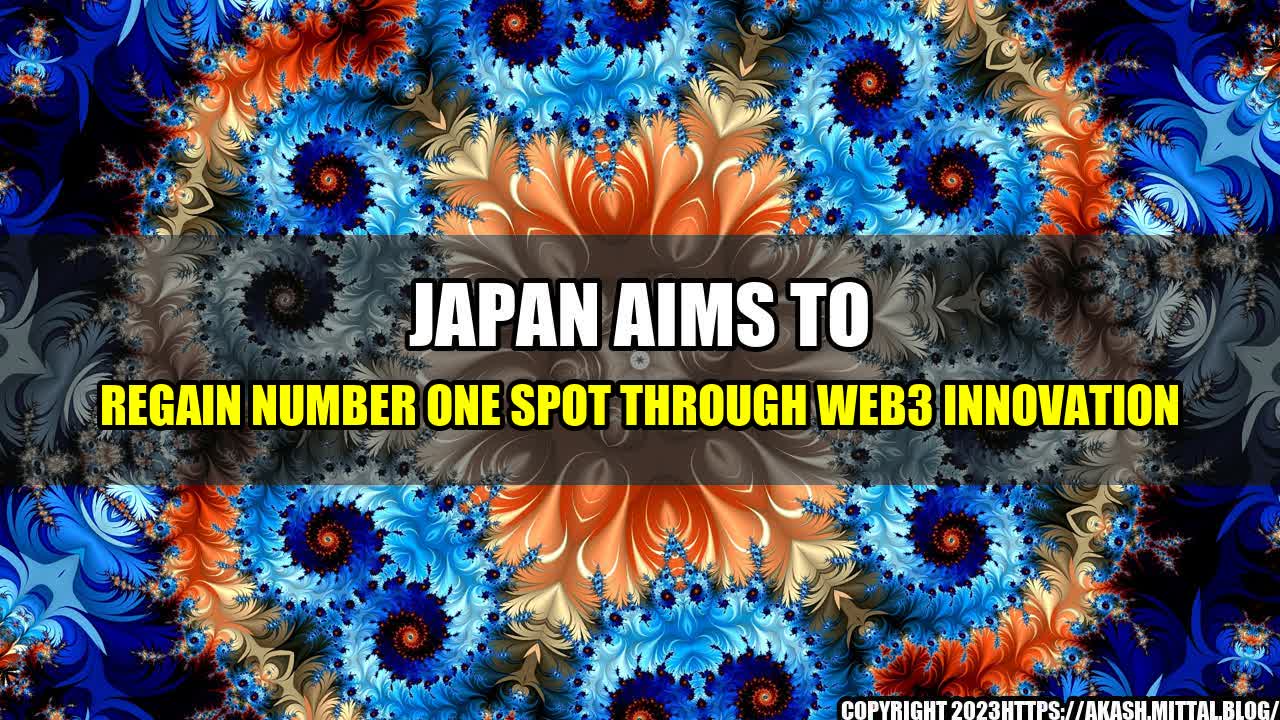Japan has a long history of being at the forefront of technological innovation, with household names such as Sony, Honda and Nintendo dominating the global market for decades. However, in recent years, the country has fallen behind in the tech race, with China and the US taking the lead in areas such as artificial intelligence and big data.
But Japan is not ready to throw in the towel just yet. The country is now looking to regain its status as a global tech leader, this time through the potential of decentralized web technologies, or web3.
"Web3 is the future of the internet, and Japan wants to be at the forefront of this new era."
- Takuya Hirai, Member of the Japanese House of Representatives
Why Web3?
Web3, also known as the decentralized web, is a new generation of internet that is built on blockchain technology. Unlike the traditional web, which is controlled by a few tech giants, the decentralized web is controlled by a network of users, making it more secure, transparent and open.
Some of the key benefits of web3 include:
- Decentralization: The decentralized web is not controlled by any central authority or company, making it more resistant to censorship and manipulation.
- Privacy: With web3, users have more control over their personal data and can choose which information to share with others.
- Trust: The decentralized nature of web3 makes it more trustworthy, as transactions are verified by a network of users rather than a centralized authority.
Japan's Web3 Strategy
Japan's government, businesses and investors are now investing heavily in web3 technologies, seeing it as a new frontier for growth and innovation. Here are some examples:
- Blockchain-based voting system: In 2020, the city of Tsukuba in Japan conducted a trial run of a blockchain-based voting system in a local election. The system was developed by a Japanese startup called LayerX, and allows for secure and transparent voting that is tamper-proof.
- Cryptocurrency exchanges: Japan is home to some of the largest cryptocurrency exchanges in the world, such as bitFlyer and Coincheck. The country has also legalized cryptocurrencies and is taking steps to regulate the industry.
- NFT marketplaces: Non-fungible tokens (NFTs) are a new type of digital asset that are becoming increasingly popular, especially in the art world. Japan is home to several NFT marketplaces, such as Artvatars and Rarible.
- Decentralized finance (DeFi): DeFi is a new type of financial system that is built on blockchain technology, and allows for decentralized lending, borrowing and trading. Japan has a growing DeFi ecosystem, with startups such as SushiSwap and Synthetix gaining popularity.
Challenges Ahead
While Japan's web3 strategy is promising, there are still some challenges that need to be overcome:
- Lack of talent: Japan is facing a shortage of skilled developers and engineers who can work on web3 projects.
- Regulatory uncertainty: While Japan has embraced cryptocurrencies and blockchain technology, there is still some regulatory uncertainty surrounding web3, which could hinder its growth.
- Competition: Japan is not the only country that is investing in web3 technologies, with China, the US and Europe also making significant strides in this area.
Conclusion
Japan is striving to become a global leader in web3 innovation, driven by the potential of decentralized technologies. The country's strong history of innovation, combined with its recent push for digital transformation, makes it well-positioned to succeed in this new era of the internet. However, challenges such as talent shortage, regulatory uncertainty and competition from other countries may hinder its progress.
In order to succeed, Japan will need to focus on building a strong ecosystem of web3 startups and developers, while also providing a favorable regulatory environment for innovation to thrive.
Category: Technology

Curated by Team Akash.Mittal.Blog
Share on Twitter Share on LinkedIn